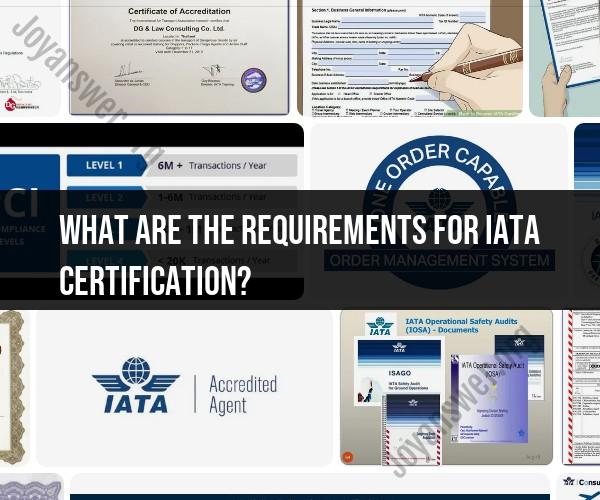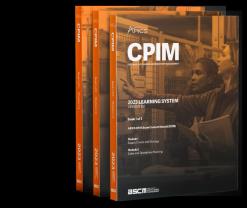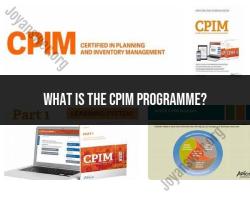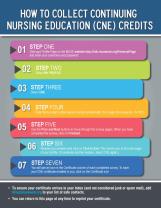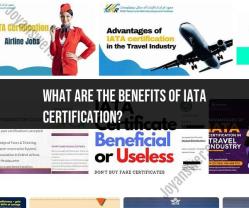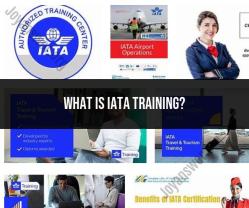What are the requirements for IATA certification?
IATA (International Air Transport Association) certification is highly regarded in the aviation industry, offering professionals the opportunity to gain specialized knowledge and skills in various sectors of aviation. This article provides valuable insights into the path to obtaining IATA certification, including requirements, available programs, and essential tips for success.
Understanding IATA Certification:
Scope: IATA certification covers a wide range of aviation-related topics, including airline management, air cargo, aviation safety, airport operations, and travel and tourism.
Global Recognition: IATA certifications are globally recognized and respected within the aviation industry, making them valuable assets for career advancement.
Choosing the Right Certification:
Identify Your Goals: Determine your career objectives and interests within the aviation field to select the most relevant IATA certification program.
Program Categories: IATA offers programs for various sectors, such as cargo operations, aviation safety, passenger services, and more.
Meeting Eligibility Requirements:
Prerequisites: Ensure that you meet any prerequisites for the specific certification program you intend to pursue. Some programs may require prior experience or educational qualifications.
Language Proficiency: Proficiency in English is often required, as courses and exams are typically conducted in English.
Selecting a Training Provider:
Authorized Training Centers: Enroll in an IATA-authorized training center. These centers offer official IATA training materials and experienced instructors.
Online or In-Person: Consider whether you prefer in-person classroom training or online courses. IATA provides both options to accommodate different learning styles and schedules.
Completing the Training:
Course Duration: The duration of IATA certification programs varies based on the specific program and the training provider. Be prepared to dedicate time to coursework and study.
Coursework: Complete all required coursework, assignments, and assessments as outlined by the training program.
Preparing for Examinations:
Study Resources: Utilize official IATA study materials and resources, which are designed to prepare you for the certification exams.
Practice Exams: Consider taking practice exams to familiarize yourself with the format and types of questions you may encounter during the certification exam.
Taking the Certification Exam:
Scheduling: Schedule your certification exam through an approved testing center or online, depending on the program's requirements.
Review and Preparation: Review your course materials and notes thoroughly before the exam date. Arrive well-prepared and well-rested.
Achieving Certification:
Passing Score: To achieve IATA certification, you must pass the certification exam with a minimum required score. Results are typically available shortly after completing the exam.
Certification Duration: IATA certifications are generally valid for a specific duration, often two to three years. Some certifications may require recertification or ongoing professional development.
Continuous Learning and Professional Development:
Stay Informed: Keep up with industry trends, regulations, and best practices to maintain and enhance your knowledge and skills.
Networking: Build a professional network within the aviation industry by attending conferences, workshops, and events related to your field.
Career Advancement and Utilization:
Leverage Your Certification: Highlight your IATA certification on your resume and in job applications to enhance your career prospects and demonstrate your commitment to excellence.
Seek Advancement: Consider how your certification can open doors to new opportunities, such as promotions or specialized roles within your organization.
Navigating the path to IATA certification requires careful planning, dedication, and the selection of the right program for your career goals. By meeting eligibility requirements, selecting a reputable training provider, preparing effectively, and achieving certification, you can position yourself as a knowledgeable and skilled professional in the aviation industry, setting the stage for a successful and fulfilling career.
